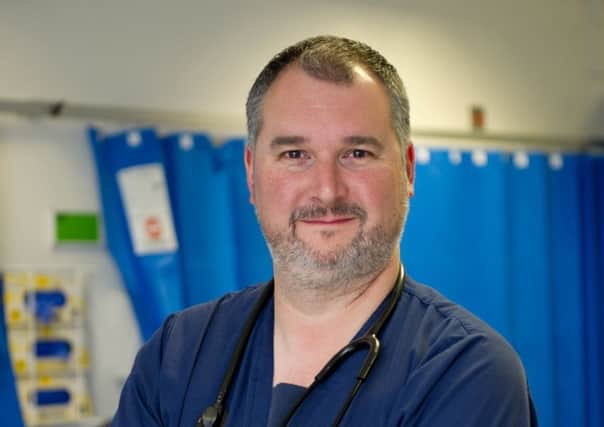'˜Expect the unexpected' when it comes to Leeds's A&Es


While A&E deals with some of most serious trauma patients among the 200,000 people who access emergency rooms in the city every year, there of visits from those who could have been treated elsewhere.
Today the YEP is once again shining a light on A&E in Leeds, and looking at when patients should and should not attend, in the third day of our Urgent Care Week series as part of our We Love Our NHS campaign.
Advertisement
Hide AdAdvertisement
Hide AdIt comes just days before the national spotlight falls on emergency departments at Leeds Teaching Hospitals NHS Trust, as the Davina McCall-hosted A&E Live show is set to hit TV screens next week.
Health bosses in the city have warned that making the right decision over where you go for care can be crucial.
Minor ailments – from Athlete’s foot to sore throats – are inappropriate for emergency departments, they say, and could be self-treated or dealt with by a GP or pharmacist.
Advertisement
Hide AdAdvertisement
Hide AdBut no matter who comes through the door, whatever their illness, staff at A&E in Leeds say they endeavour to treat patients with compassion, and without judgment.
“A&E can be totally different from one day to the next,” said Jonathan Thornley, pictured, who is a consultant in emergency medicine that has worked in the emergency department for more than 13 years.
“In one shift we could see pretty much anything: car accident victims, sporting injuries, burns, DIY accidents, deliberate self-harm, nosebleeds, and much more.
“It can range from the weird and wonderful ways that people find to injure themselves right down to the everyday sniffles and colds that have no place in an emergency room.”
Advertisement
Hide AdAdvertisement
Hide AdUpon arrival at A&E, thousands of patients every year are found to have a minor illness.
They are diverted away from the emergency department to alternative services based elsewhere in the hospital, provided by GPs or nurses, and aimed at those whose ailments are not life-threatening.
“We have a duty of care to every patient that walks through the door,” Dr Thornley said.
“And no matter what they come in with we aim to show care and compassion without judgement. Everybody perceives an ‘emergency’ differently and it is a real challenge to explain to some people that what they have is a minor illness which will most likely clear up on its own.”
Advertisement
Hide AdAdvertisement
Hide AdThe rise of social media in recent years – and the popularity of the internet since the turn of the century – has meant that people can try to self-diagnose before seeing a doctor.
“We see a lot of ‘worried well’ – people who have Googled their symptoms and diagnosed themselves before arriving, or parents of young children who feel nervous or unsure about how to care for their sick child,” Dr Thornley said.
“There are lots of services available in Leeds which would be more appropriate and we try to urge people with non-emergency issues to exhaust these other options first.”
He said the first port of call for many with minor illnesses should be their local pharmacist, GP or the NHS111 service.
Advertisement
Hide AdAdvertisement
Hide AdDr Thornley added: “A&E in Leeds provides an amazing service to lots of people across the whole of Yorkshire and to finish a shift knowing that you have made a difference is an utter privilege.
“The team here is what makes it special – you can’t do it alone and the support the team gives to each other to get through the things we see is critical.”
